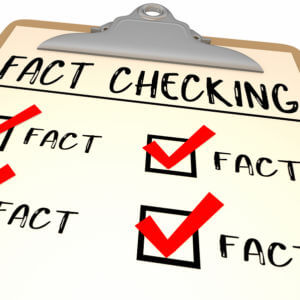A whole new area of endeavor is opening up for the entrepreneurial. Name it after the ancient Greek philosopher Diogenes of Sinope. He allegedly hunted for an honest man and was possibly the founder of Cynicism.
Verification will become a vital business as the flood of misinformation engulfs us. What can be trusted? What source is reliable? What image is actual? Is the voice or image authentic, or has it been created with artificial intelligence?
Rather than fact-checking becoming outdated, as at Facebook, it will be essential. The source of news will be as important as the news. Publications with a reputation for accuracy, or their equivalent in this digital free-for-all information age, will be revered.
As — whether we like it or not — we all get our current information through journalism, journalism becomes more critical, not less so.
Elon Musk, who owns X, has declared that we are all journalists now. No, we are not.
You don’t have to spend four years in a university to become a journalist, but some reverence for the craft and some on-the-job training is necessary. Skill with the language, a knowledge of history, curiosity, and a desire to find out what is going on and tell people are all needed.
So is the hardest part of the qualification to define: news judgment. This is knowing what news is and seeing it immediately. You also need to be serious about facts and fact-checking.
Fact-checking, which Mark Zuckerberg, the boss of Facebook, has equated to being incompatible with free speech, is at the heart of journalism. The individual journalist is haunted by a permanent fear (“the inner core of panic,” as my late first wife, Doreen, who was a superb journalist, described it) of, “Did I get it right? Is it Steven or Stephen or did the speaker say millions or a billions?”
Any news story has many facts and judgments, most executed under pressure and in real-time. If it is essential, it needs to be gotten out.
After World War II, and mainly because of excellent reporting from London during the Blitz, the BBC developed a reputation worldwide as trustworthy in getting it right. In much of the world, that reputation still stands. But in Britain, the BBC is reviled for being left-leaning and woke-thinking.
The once great news service, United Press International, had a reputation among editors for being unreliable. I never found anyone who could prove that it was less dependable than its competitors, the Associated Press, Reuters and the English version of Agence France-Presse, but the myth was oft-repeated and stuck.
Similarly, The New York Times is regarded worldwide as exemplifying the gold standard for reliability. However, in the United States, many regard it as left-leaning and, therefore, less believable.
That doesn’t mean there are no mistakes, indeed egregious errors; we all make them and suffer the shame that goes with it. The agony of getting facts wrong is real and profound and known to every journalist.
Factual inaccuracy is a self-inflicted wound on a publication. If one fact is wrong, the veracity of the entire outlet is called into question in the reader’s mind.
Ownership is not as important as the integrity of the individual operation. The Wall Street Journal is regarded as being accurate, but the New York Post is thought of as having dubious accuracy, and Fox News is seen as incontrovertibly political, yet all three have the same ownership.
In the news business, fact-checking has to be part of the process. It can’t be glommed on after the event.
Journalism and its army of reporters can only help with facts in some measure.
When it comes to the industrial-scale disinformation pouring out of governments and political parties everywhere — and especially now out of Russia and China — technology needs to be mobilized to fight the technology-generated lies: fake images, sounds and news situations.
The best hope is that technology will be able to fight its own evil; to be able to tag the fake or at least to identify the real with watermarks — where the information came from and how it was created.
The world needs a fact-checking ethic, something that has existed quietly in journalism for a long time but which is threatened to be overwhelmed in the asymmetry where journalism is a small part of the dishonesty spewing out of social media, such as Facebook, X and Truth Social, and from Russia and other mischief-bent regimes.
Meanwhile Diogenes’ cynicism may be the first line of defense, along with the journalism of old. Verify before you trust.

 Follow
Follow
Leave a Reply